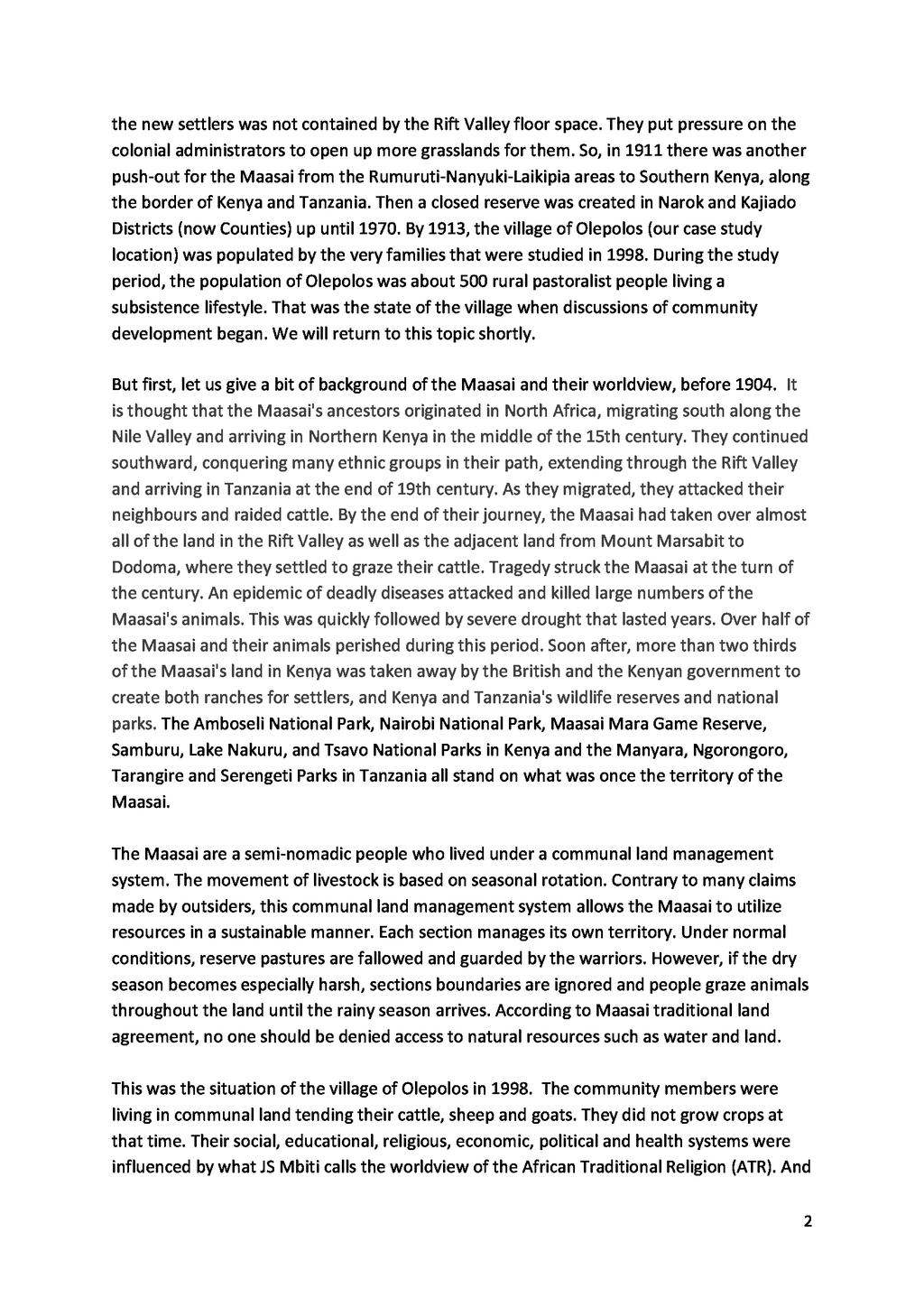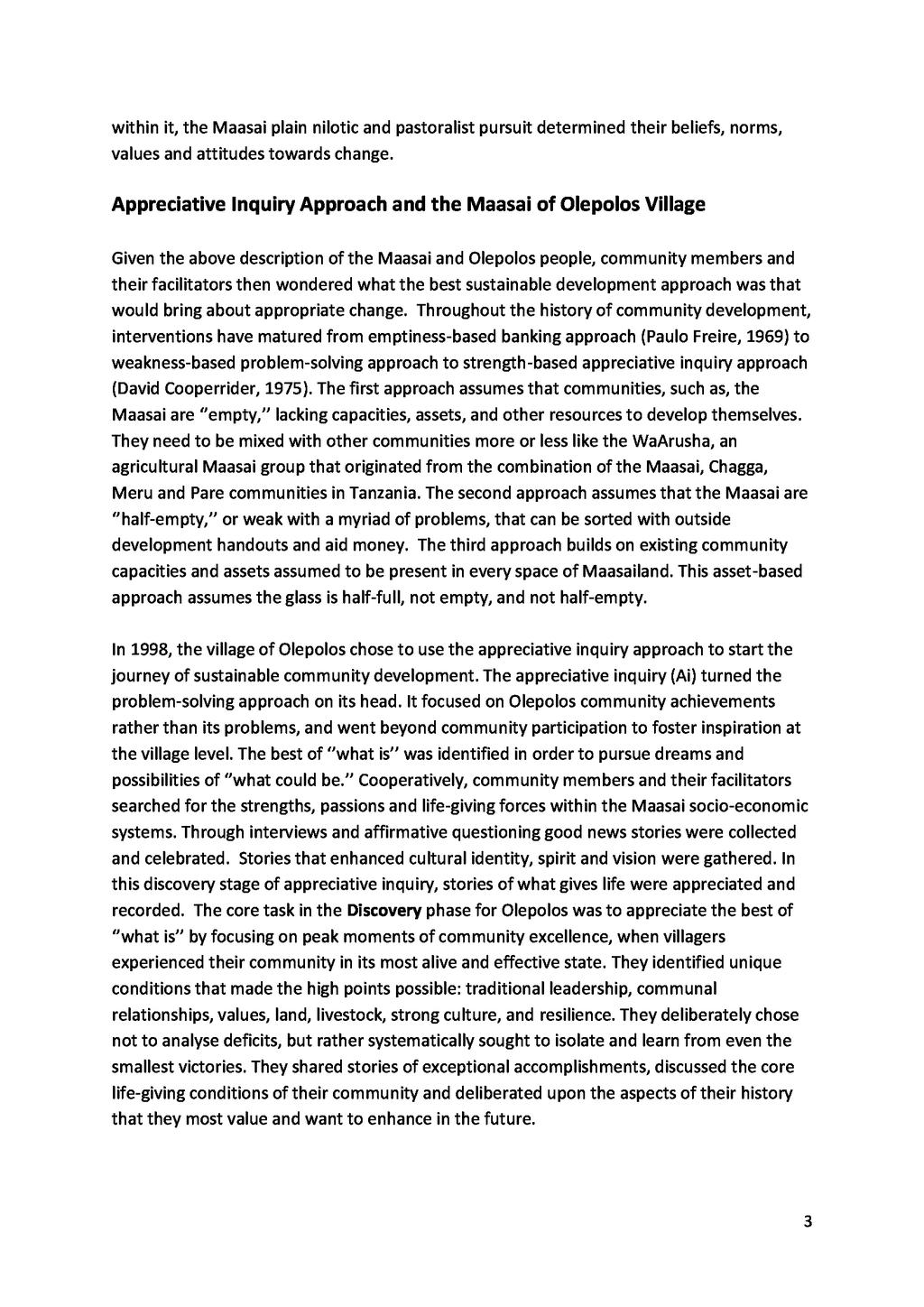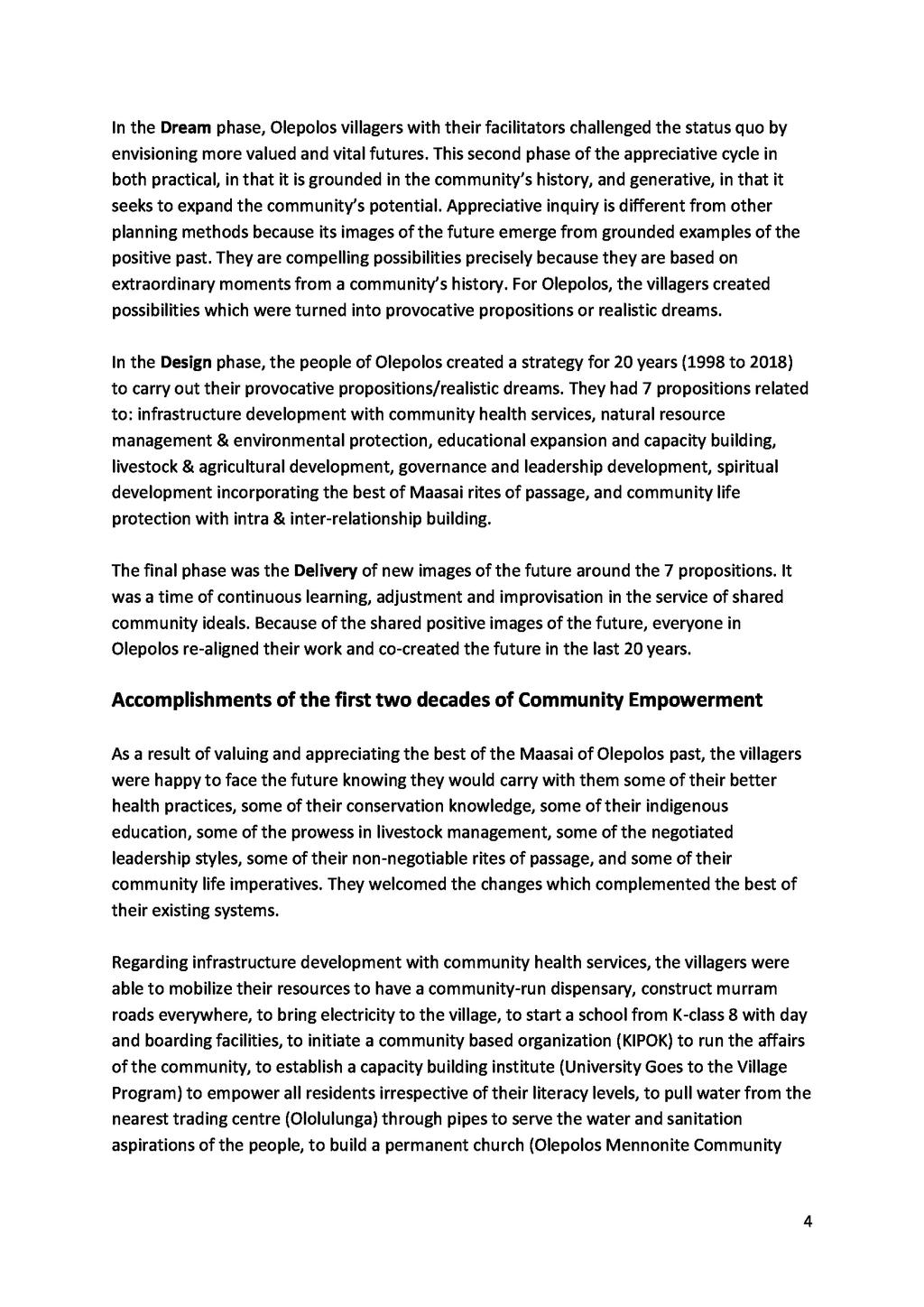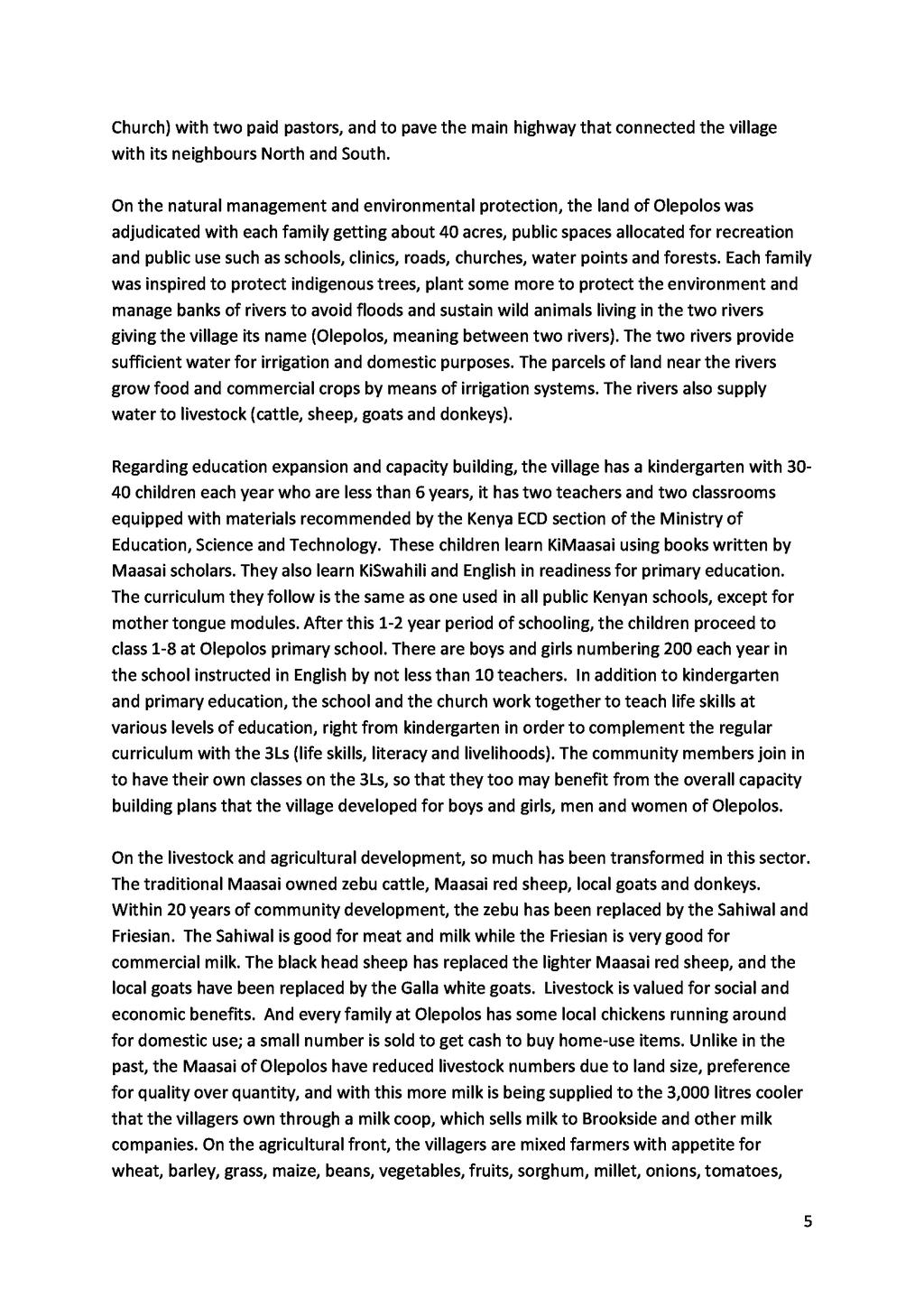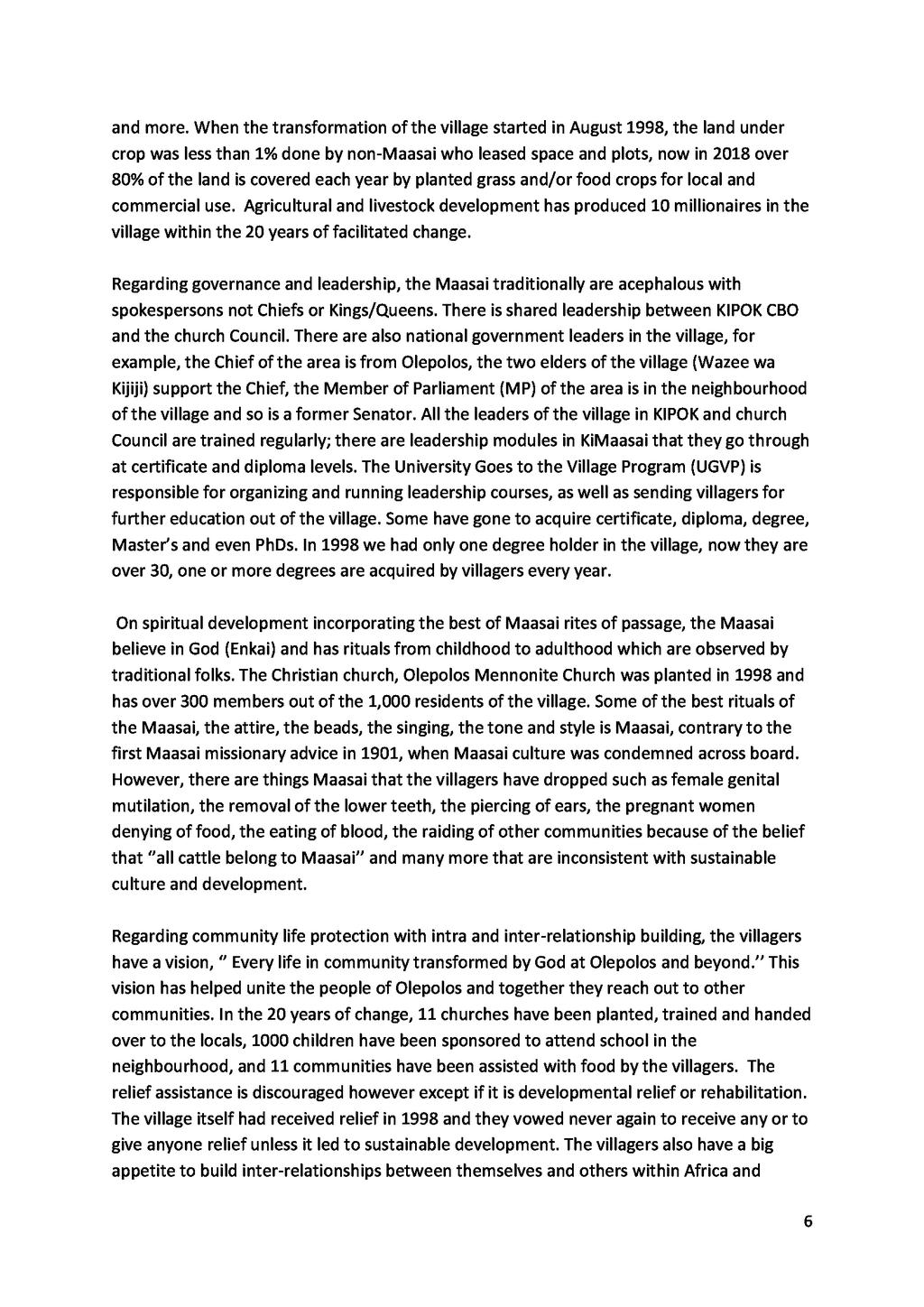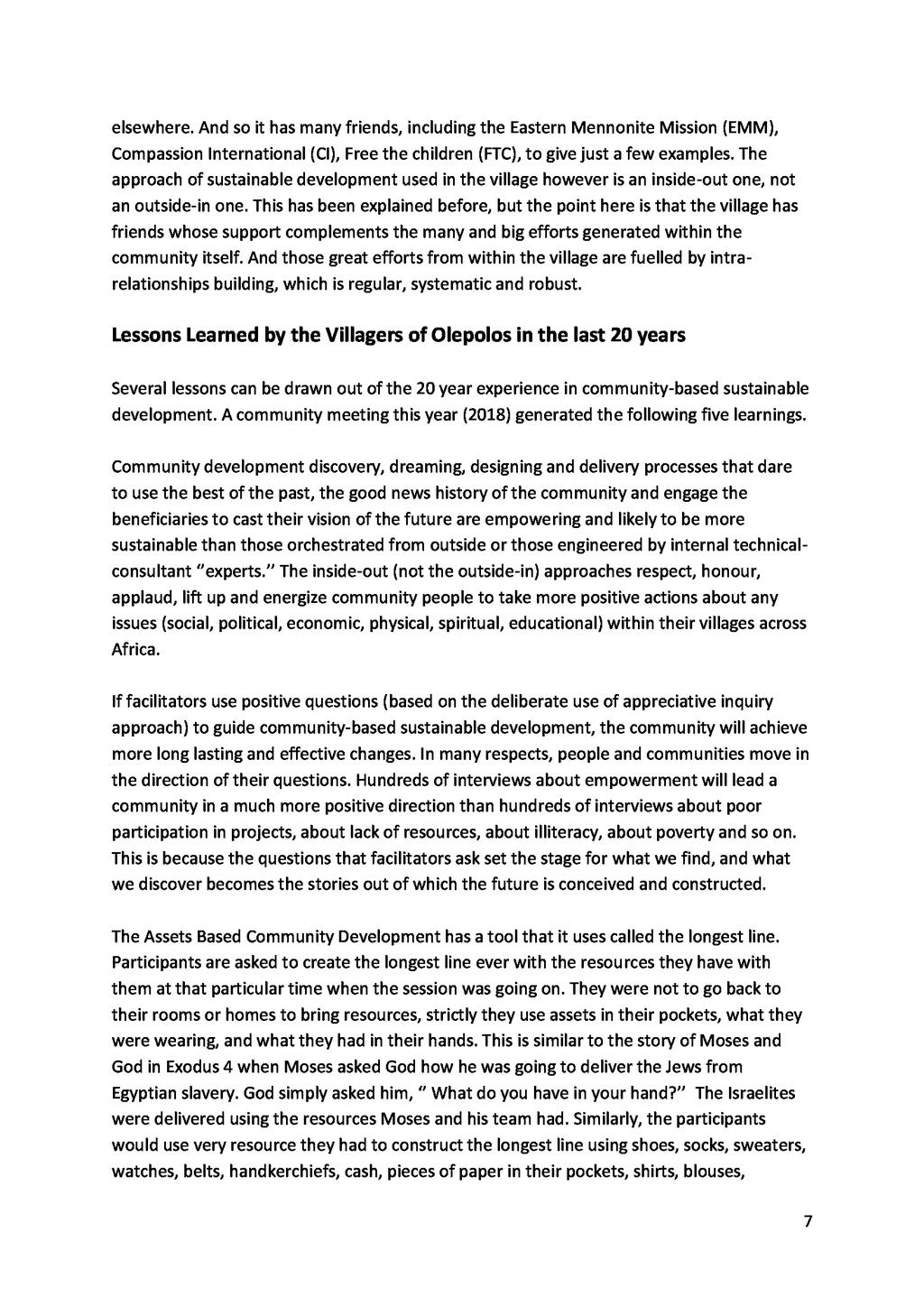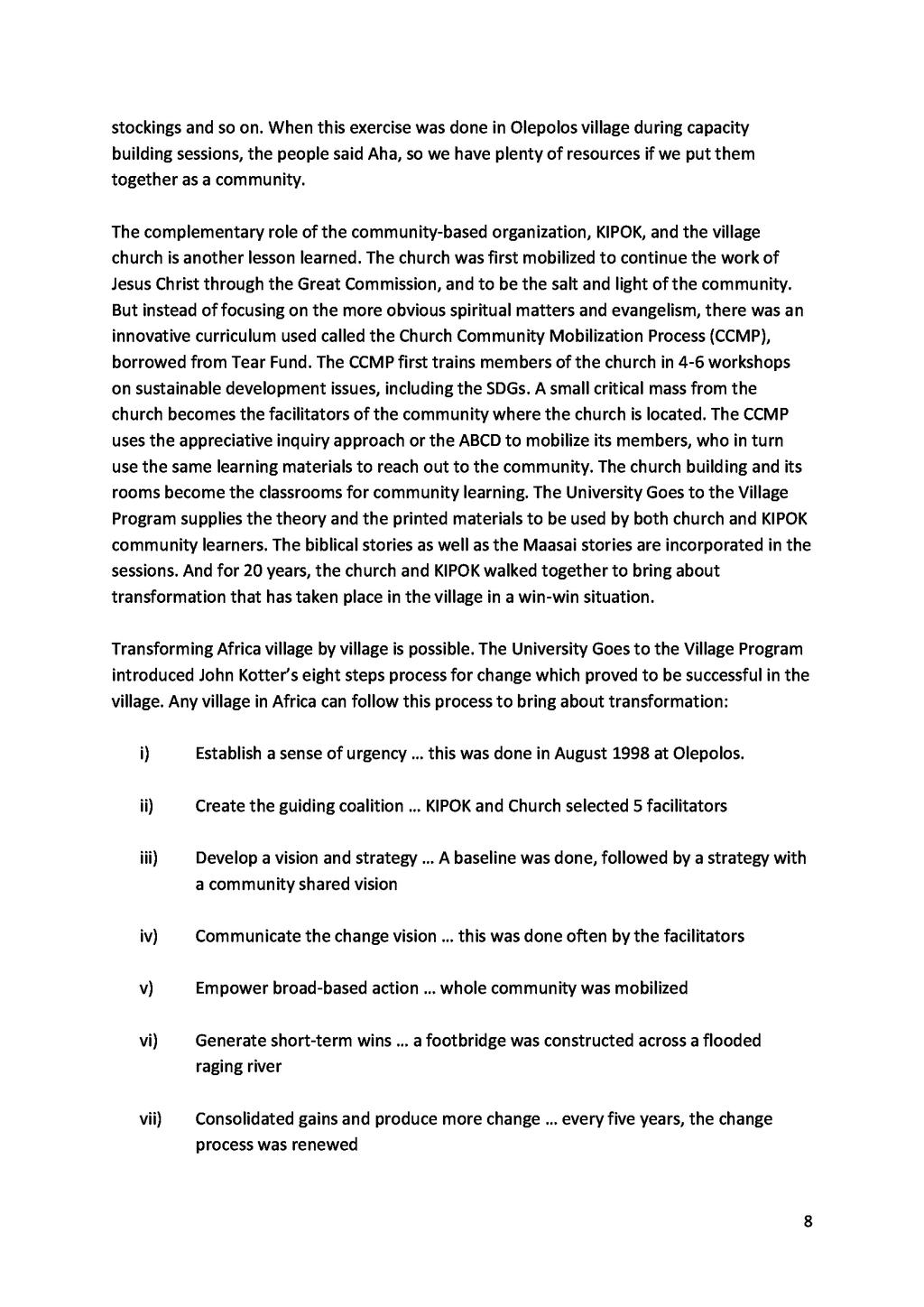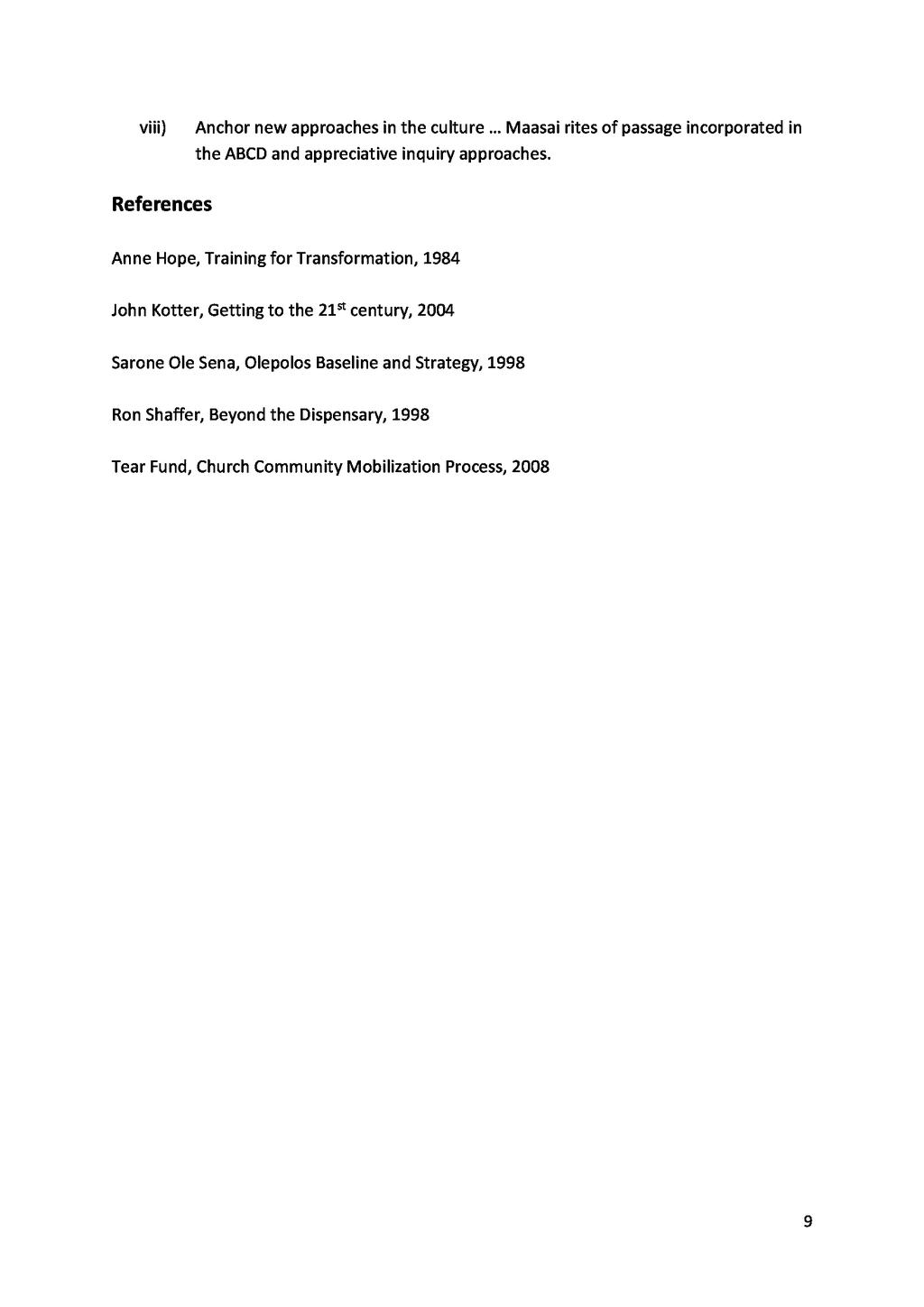Người Thuyết trình: Dr. Serone Ole Sena
Sự kiện: Symposium on Improving Nutrition in Dryland Areas (08-08-2018)
Abstract,
The focus of this paper is on community empowerment for sustainable development. The data is based on empirical/primary research carried out during the process of sustainable (community) development implemented between 1998 and 2018. The paper shares the experience of one rural village in Narok County of Kenya, which started with relief food, zero number of toilets, no roads, no electricity, no school, no clinic and basically pursuing a subsistence life style rampant with poverty. At the same time, the village was rich with resources, including land, rivers, forests, cattle, sheep, goats, donkeys and human resources. Using the ABCD approach to community empowerment, the village began to change and the people transformed their life styles to produce domestic and market foods, to build toilets at every home, to demand roads from local authorities and to construct some for themselves, to light up their homes with solar and the main power grid, to build a school from ECD to class 8 with day and boarding facilities, to construct a community-based health care and clinic, and to shift their paradigm of rearing livestock for social prestige to one that accommodates social as well as economic market forces. The ABCD stands for two approaches: the first is Assets Based Community Development (originating from appreciative inquiry theory) in which the community is empowered to use their own resources prudently and to seek outside help sparingly. The second is Achieving Balanced Community Development in which poverty is alleviated, the environment is protected and relationships are being reconciled: community people intra and inter relations, and with God and the planet. These two ABCD approaches allow the Olepolos community to achieve their selected SDGs and the thematic areas as summarized above, and to continue on their transformational journey which began in August 1998.
Biographical information: Dr. Serone Ole Sena Sarone has served as a teacher, mentor, development worker and researcher for 50 years in Kenya, Tanzania, Uganda, Canada, USA, UK, New Zealand, Ghana, Mali, Senegal, Mauritania, Ethiopia, Rwanda, Burundi, South Africa, India, Philippines, Ecuador, Peru and Guatemala. He has written articles and books on the use of appreciative inquiry approach to community-based development. He is an adjunct professor of Cultural Anthropology with Associated Colleges of Mid-West, USA. He holds a B.Ed (University of Nairobi, Kenya), an M.Phil (University of Cambridge, UK), an MSc (McMaster University, Canada) and a PhD (McGill University, Canada). Currently, he is on sabbatical leave from MS TCDC, Usa River-Tanzania where he teaches in order to write a book on Life in Blocks: From Dependency to Independence then to Interdependence. He has a Christian family with a wife and three grown up children./ Rev. Joseph Mayala Mitinje is currently serving with World Vision Tanzania as a Team Leader for Advocacy, Child Protection and Faith & Development. Between 1997-2017 he served with Standard Chartered Bank (T) Ltd (SCBT), Compassion International (CI) and Farm Concern International (FCI) holding different capacities including a Corporate Manager (SCBT), Country Director (CITZ), Senior Director - Advocacy (CI Africa) and Consulting Expert - Strategic Partnerships (FCI). He is a pastor with Africa Inland Church (AICT), Governing Council - Africa International University (AIU Kenya) and Board Member for a number of organizations within & outside of Tanzania.

